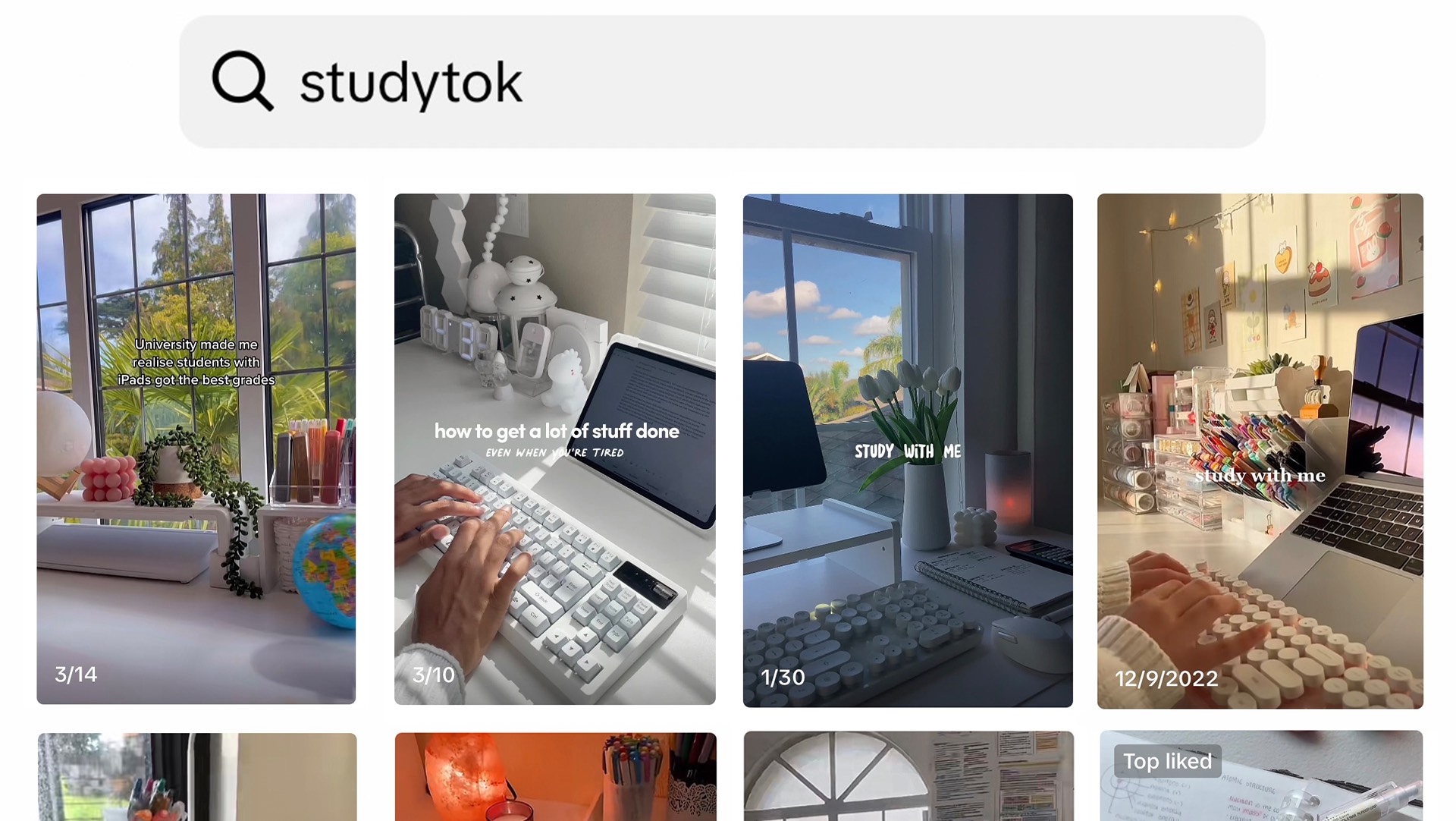OPINION: Stop romanticizing the college experience

#Studytok is an increasingly popular education trend on TikTok with over 32 million views while the trend #collegelife has received nearly 20 billion views –– each within the past seven days.
Through these trends, students romanticize academia and the overall college experience.
Students shouldn’t base their college expectations on social media representations of it, as they can develop poor mental health or have feelings of social isolation.
In her October 2022 Tiktok video, user @janinaalaura showed a day in her life at her university as she goes to classes, eats balanced meals, studies, hangs out with friends and goes to sleep by 10 p.m.
Many influencers that follow these trends try to portray a “perfect life” on social media, causing viewers to begin to feel pressured to follow these trends. This can lead to anxiety, stress or depression.
In the college setting, students see these trends and begin to feel that they must also live the perfect lives they see every day on social media and often become disappointed when they can’t do that.
More than 30% of USF students surveyed find that social media has had a negative impact on their college experience, according to an Oct. 10 survey of 42 students conducted by The Oracle. The survey discussed the relationship between social media and college life.
Comparison to the seemingly perfect life that is seen in the “Studytok” and “collegelife” trends also significantly affects how students perceive their own day-to-day lives.
Just over 79% of the USF students who participated in the survey feel that social media has altered their perception of their own work ethic, according to the Oracle survey.
Social media apps like TikTok fuel the idea of the “perfect student.” This creates a form of toxic motivation that influences students to study for hours on end without breaks which can be very draining for students, according to an Oct. 5 article by the Daily Trojan.
Not only are students romanticizing the academic side of college, but the social experience that college provides as well. This begins causing feelings of social isolation among students as they develop a fear of missing out.
More than 50% of social media users report experiencing the fear of missing out, according to an Aug. 3 article by Social Media Victims Law Center.
It has been found that many students struggle with making friends while in college. Roughly 64% of college students reported feeling “very lonely” in a span of a year, according to a February 2020 article from Linkedin.
Although these trends can be motivating for some students, they continue to provide a false reality and can still lead viewers to believe that their lives should be the same as these student influencers. This lifestyle is unattainable for many which leads to a decline in the mental health of students.
Due to the negative effects that the romanticization of college can have on students, it is essential for students to understand that what they see on social media is not always reality. It’s important to keep in mind that everyone’s experience in college is different and students can make their experience unique.
Putting a stop to the romanticization of university life will improve the overall well-being of students and allow students to see the truth behind these trends.








